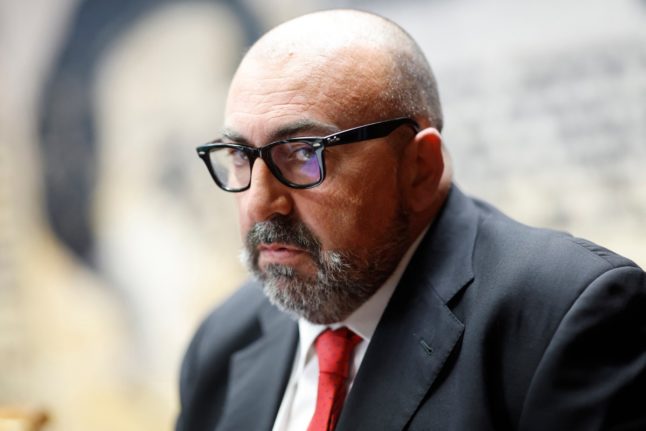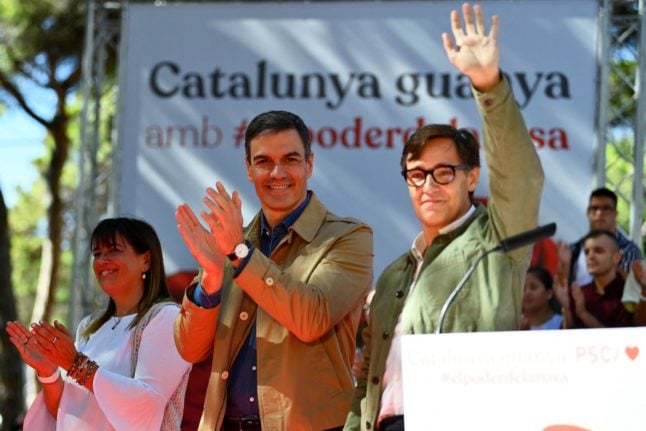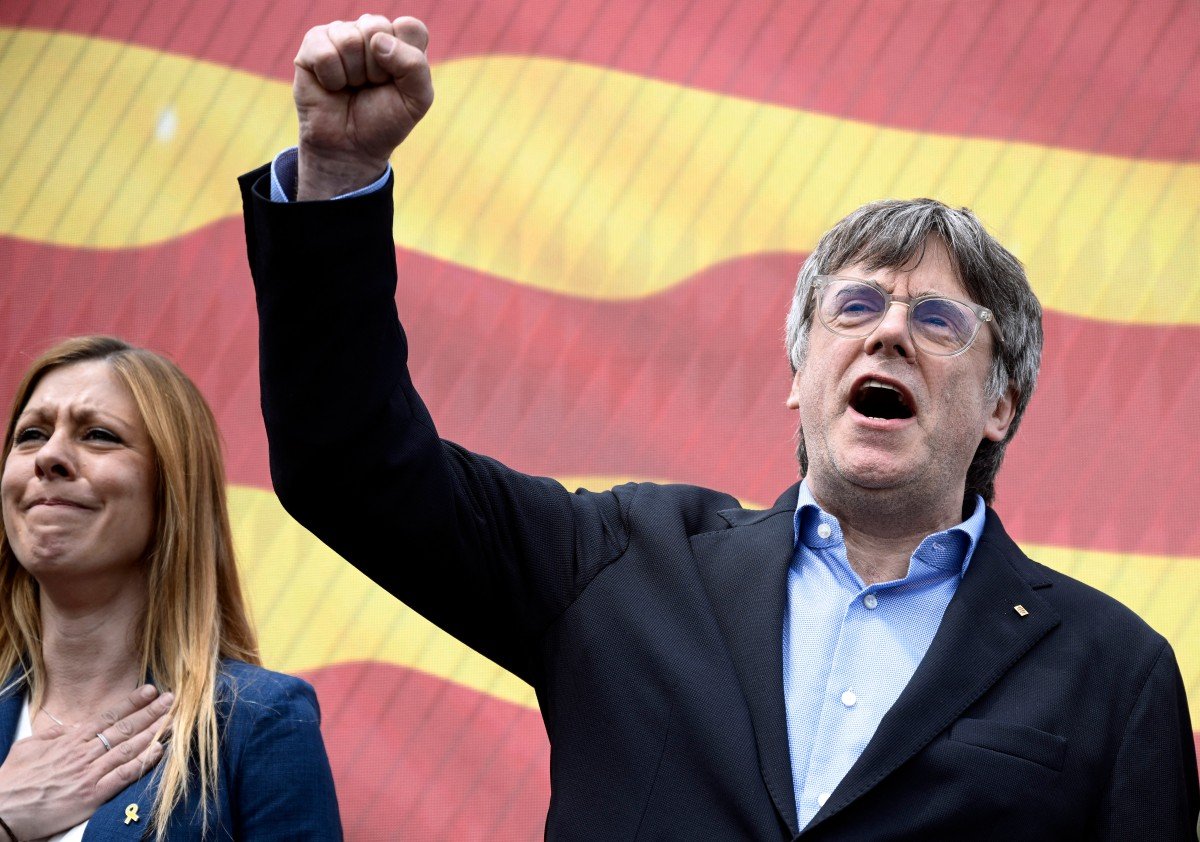Koldo García appeared before a Senate committee in connection with a kickbacks scandal linked to the procurement of face masks during the Covid-19 pandemic.
At the time, he was a close adviser to then transport minister José Luis Abalos, a key member of Prime Minister Pedro Sanchez’s Socialist party.
The Senate upper house is dominated by the right-wing opposition Popular Party (PP) and Monday’s hearing was the first time García was to have spoken publicly about what has become known as “the Koldo affair”.
Bombarded by questions, García invoked his “right not to testify” because a legal inquiry into the scandal has started. But he told the committee his conscience was “absolutely clear”.
READ ALSO: What is Spain’s ‘Caso Koldo’ corruption scandal all about?
García said he had been found guilty even before going on trial. “In the media, I have already been hung, drawn and quartered,” he said.
Arrested on February 21, García is suspected of being a central player in a scheme that let a small, previously unknown firm – Soluciones de Gestión (Management Solutions) – obtain contracts worth €53 million ($57.5 million) to supply masks to public authorities at the start of the pandemic.
Prosecutors say the contracts allegedly generated kickbacks worth €9.5 million.
The scandal is particularly sensitive for Sánchez, who took power in 2018 following a huge corruption scandal that brought down Spain’s PP government, and has prided himself on the integrity and transparency of his administration.
Earlier this year, PP head Alberto Núñez Feijóo said Sánchez knew about the affair, saying he “covered it up”, later suggesting the prime minister might have been involved, without offering any proof.
READ ALSO: ‘You covered it up!’ – Spain’s right ups ante against govt in face mask scandal




 Please whitelist us to continue reading.
Please whitelist us to continue reading.
Member comments